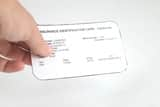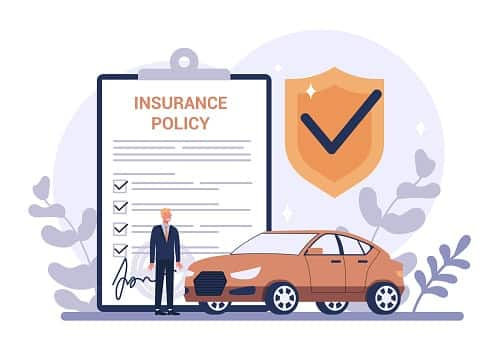How to switch car insurance companies in five easy steps
Finding a cheaper policy is the easy part. Insurance.com's car insurance comparison tool lets you quickly and seamlessly compare your options. But transferring your car from one policy to the next takes some know-how. So, once you've found a car insurance company you prefer, follow these five easy steps to switch car insurance:
1. Check if you'll be charged a cancellation penalty
Most insurance companies allow you to cancel auto insurance if you provide proper notice. Some companies, however, may charge an early cancellation fee or even refuse to refund the unused portion of your prepaid car insurance.
You can call your insurance company or review your policy's terms and conditions to determine if you'll be charged a cancellation penalty. Knowing in advance will help you decide whether to switch right away -- or wait to cancel until it's time for your policy to renew.
If there is a cancellation penalty, look into new-customer or insurance transfer discounts from your new insurance company. It may offset your existing insurance company's cancellation fee.
2. Have a new policy in place
Getting in an accident when you're between policies could be an expensive mistake. Before you cancel your existing policy, make sure you have a new policy lined up, or your car insurance could lapse. A gap in coverage could negatively impact your future car insurance rates.
Pay for your new policy and identify an effective date, which would be the date your car insurance starts.
Check that your new insurer emails you proof of insurance and a declarations page, which is a document showing you're insured as of a specific date. You may need it later if you decide to cancel.
3. Print out your new auto insurance card
If your new car insurance company doesn't mail insurance cards and documentation, you'll need to print out a copy for your records. Be sure to print insurance cards for all your insured vehicles and keep one in each car's glove compartment.
4. Cancel your old insurance policy
Once you're insured with the new company, you'll need to know how to cancel your old policy. Canceling your old policy involves simply contacting your previous insurer. You may need to put the cancellation in writing and provide proof of new insurance.
5. Request a refund of unused and prepaid premiums
Lastly, if you prepaid your old policy and canceled before the coverage is up, ask your insurer to refund your unused premiums. They'll likely do this without you asking, but it's always a good idea to ask about the process and what you should expect.
Is it worth switching auto insurance companies?
Exploring changes often involve tradeoffs. For example, switching policies will take some legwork but could save you hundreds of dollars a year. Here are some things to consider when weighing your options that may indicate it is worth making the change.
- After getting a few comparable quotes, you've found a significantly cheaper policy.
- You are relocating to an area where your current car insurance provider doesn't operate.
- You no longer qualify for auto insurance discounts.
- You're unhappy with the level of service.
- You'd like to bundle all your insurance with one company.
What are the pros and cons of switching insurance companies?
The benefits of switching companies are essentially the potential to get better service and lower premiums. But beyond the labor involved in researching policies and coordinating the switch, there are further potential benefits you may be giving up that you should consider:
- If you currently bundle all your insurance in one place, you may have to worry about two different bills and due dates after you switch.
- You may trade insurance perks with your existing company, such as earned accident forgiveness, reduced deductible and future renewal discounts for a lower price.
- The new company may not meet your expectations -- check customer reviews carefully before you make a switch.
Auto insurance FAQs
How often should I shop for a new car insurance policy?
Upon experiencing a life event - such as marriage, having children reach driving ages, or purchasing a new car or moving to a new city or state - it's a good idea to have a checklist of financial documents to update. Add auto insurance policies to this list for updating, or contact an insurance agent to review your policy to see if it's worth exploring new options.
Another good rule of thumb is to simply set annual reviews of your policies while checking what other options are out there.
Can I switch car insurance while I have an open claim?
You may be considering switching car insurance after an accident. You can switch car insurance companies at any time, whether you've been in an accident or not. However, it is important to consider that you likely will not be able to file a claim with a new insurance company for an accident that has already happened. You would complete the claim with the insurance company that had your policy at the time of the accident. Also, you may not see a rate increase from your current insurance company until your next renewal.
When does it make sense to stay with the same insurer?
Sometimes loyalty to your current car insurance provider should be strongly considered. For example, customers who bundle home or renter's insurance, among other types of coverage, with one provider can be rewarded with significant discounts. Also, they may provide additional valuable perks such as accident forgiveness in exchange for your brand loyalty.
Should I cancel my car insurance if I'm no longer driving?
If you have a car but don't expect to be driving for an extended period of time, car insurance can make a big hit on your budget even though you feel as if you don't need it. Yet, canceling your insurance policy may not always be a good idea. It may violate your state's law, affect your insurance history or open you up to undesired liabilities.
Instead, talk to an insurance professional about their recommendations for lowing the amount of coverage on your policy. Also, discuss the potential for increasing the deductible on your policy. Of course, the greater the deductible, the lower your premiums will be. But if you do start driving again with the larger deductible, consider if your emergency fund is adequately funded.
Do I need to let my lender know about switching auto insurers?
Your lender must stay informed on the insurance coverage of your vehicle. They may stipulate that you have certain levels of coverage to ensure that their loan is protected. Work with your new insurance provider to coordinate sending a copy of your new policy to your lender.
How do I switch companies without a lapse in coverage?
Always try to set your effective cancellation date for your old policy to the same day your new policy begins to avoid a lapse. And make sure you get this in writing. Also, confirm in writing with your new carrier that they received payment for your new policy, and it is set to be enforced on time.






